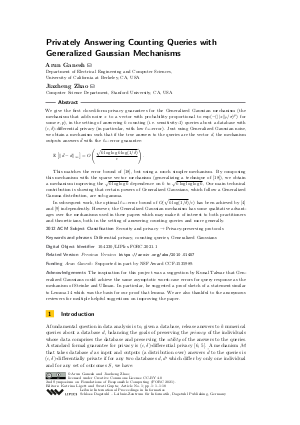LIPIcs.FORC.2021.1.pdf
- Filesize: 0.75 MB
- 18 pages

 Creative Commons Attribution 4.0 International license
Creative Commons Attribution 4.0 International license






Feedback for Dagstuhl Publishing